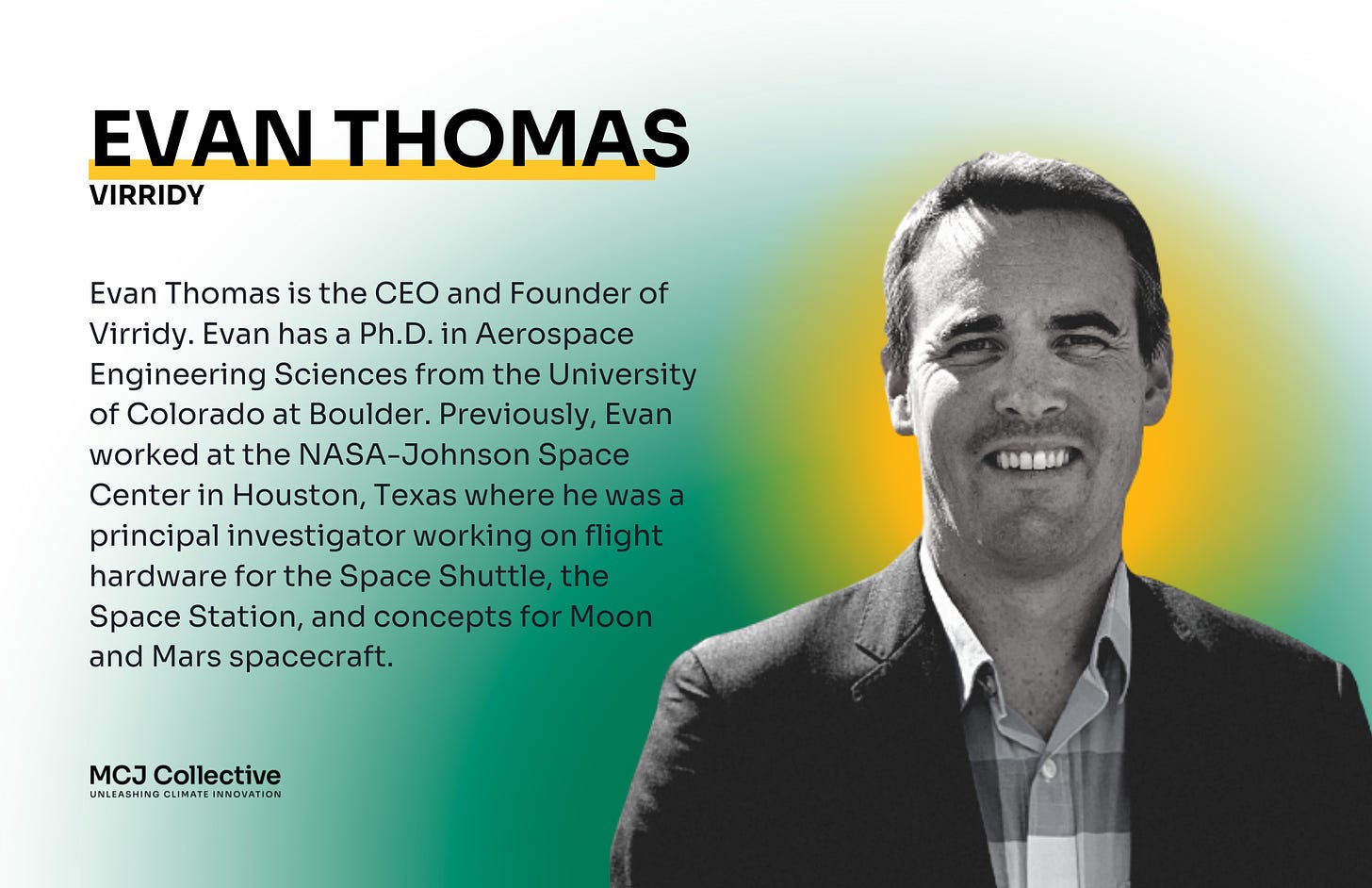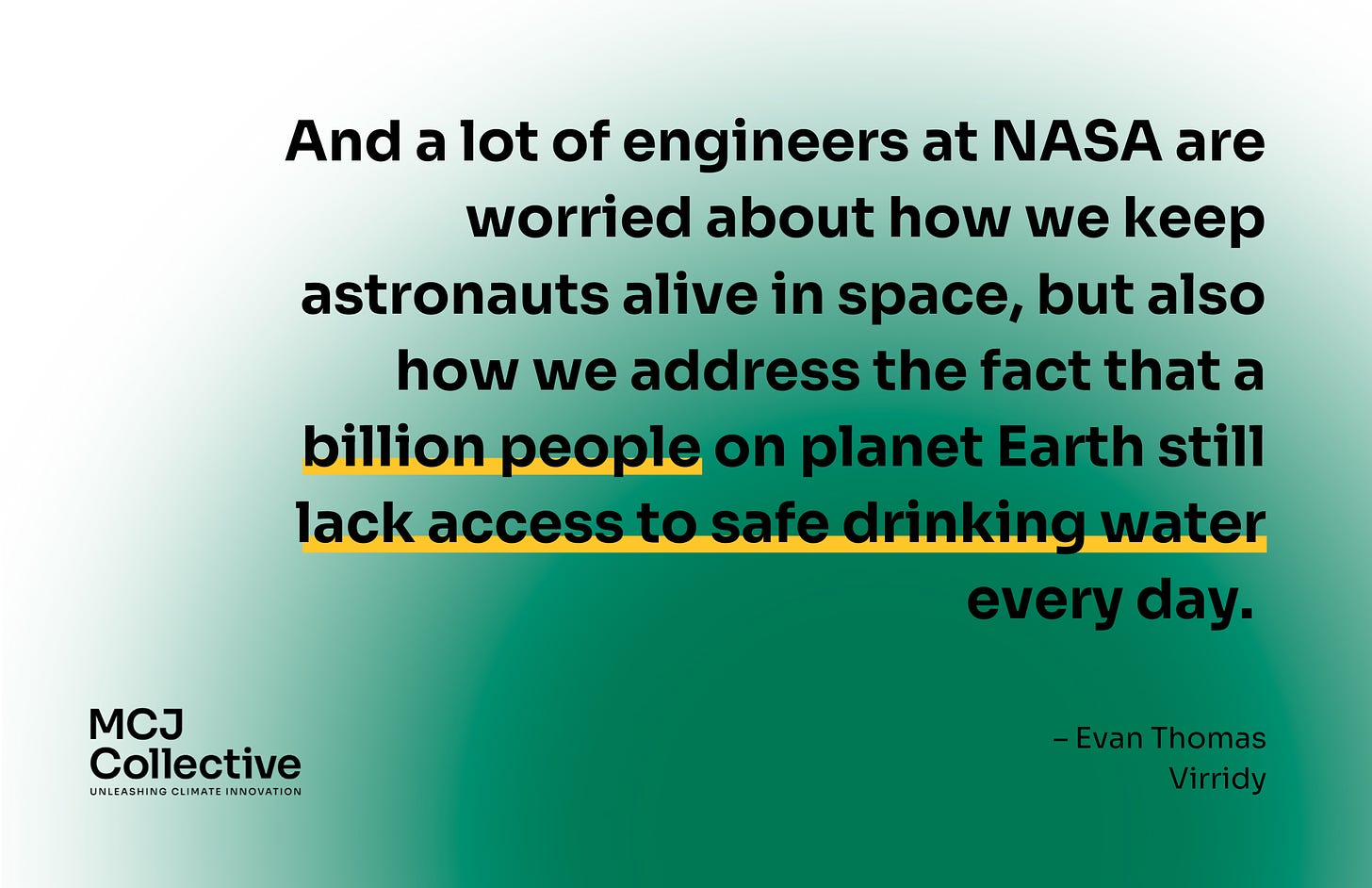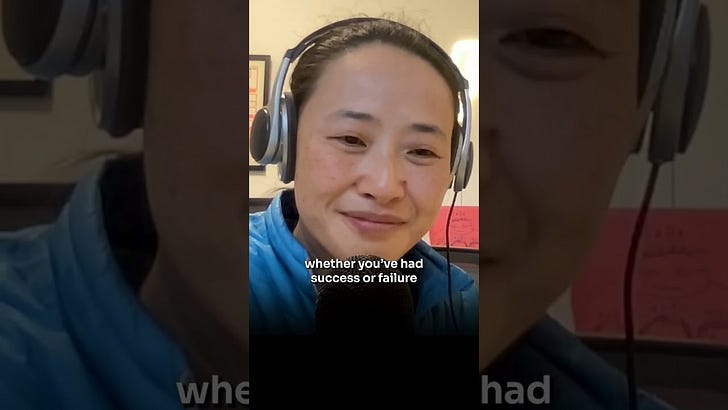Today's guest is Dr. Evan Thomas, CEO and Founder of Virridy, and Director of the Mortensen Center in Global Engineering & Resilience and the Climate Innovation Collaboratory at the University of Colorado in Boulder. Evan is also a tenured Associate Professor in the CU Boulder Civil, Environmental and Architectural Engineering Department. So, he’s a busy guy.
Virridy’s water sensors monitor and measure groundwater pumping for more than 4 million people in the East African countries of Kenya and Ethiopia and the American West. The company’s partners include the National Science Foundation (NSF), USAID, The World Bank, NASA, the Millennium Water Alliance, Swarm Technologies, The Freshwater Trust, Wexus Technologies and the Kenyan government.
We’ve recently had a few conversations on the pod at the intersection of water and climate change. Jason spoke with Felicia Marcus of Stanford’s Water in the West program, and Cody recently spoke with David Wallace of CODA Farm Tech. It’s worth noting some of the key learnings up to this point. For starters, conversations about water are nuanced. Droughts, floods, sea level rise, irrigation, stormwater systems, clean drinking water, etc… all have water as a common thread but are each enormously separate topics on their own. And most of the problems and challenges with water existed before climate change, but they have accelerated faster than anyone anticipated.
Evan is pursuing two different business models in East Africa and California, albeit with the same tech stack. In the former, he primarily seeks to earn avoided emissions carbon credits by monitoring the activity of groundwater pumps and the cleanliness of the water they produce and ensuring access to clean drinking water without the need to burn fuels to heat and purify it. In the American West, he is participating in the demand response economy, helping water utilities shut down their groundwater pumps and conserve electricity during times of peak grid demand.
Evan and Cody have a fantastically nuanced conversation, tackling subjects as diverse as the outcomes of COP27 as it relates to climate justice, his background at NASA and how it informed his approach to earth science, how he runs a company while also being a university professor, how carbon credit financing works, and of course the differences in how climate change is accelerating droughts in East Africa and the American West, and what that means for the water systems in each geography. Get ready to dive in a learn a ton!
In this episode, we cover:
[4:12] Evan's background in water systems in space and rural communities
[8:28] Applying carbon credits to clean drinking water
[10:50] Evan's partnership with Life Straw and academic and entrepreneurial experience
[12:20] Similarities and differences between the American West and East Africa in terms of climate change and water
[18:36] Groundwater in East Africa vs. California and purification requirements
[24:10] Virridy's solution and technology
[26:22] The company's carbon credit methodologies in Africa
[28:31] Financial incentives and carbon offset endorsements from COP 27 in Egypt
[32:11] Virridy's different business model in the U.S.
[37:48] How Evan manages Virridy's different markets
[42:59] Applying Virridy's tech to soil carbon
[46:23] The company's funding to date and an overview of pre-selling carbon credits
Visit our website for a full transcript of this episode.
Get connected:
Cody's Twitter
Dr. Evan Thomas / Virridy
MCJ Podcast / Collective
*You can also reach us via email at info@mcjcollective.com, where we encourage you to share your feedback on episodes and suggestions for future topics or guests.
Episode recorded on November 28, 2022.















A Nuanced Discussion About Groundwater